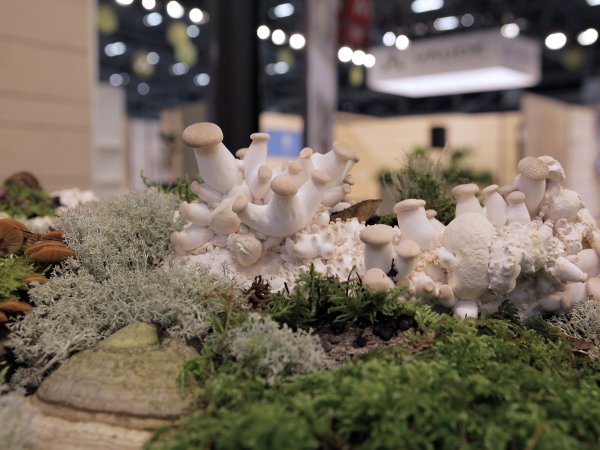During COP28, the substantial involvement of the business community played a pivotal role in exerting pressure on governments. Now, it is crucial for businesses to take decisive actions in mapping and eliminating fossil fuels from their operations and value chains, accelerating the transition to climate solutions. UN climate chief Simon Stiell summarized the progress at COP28 by stating, “While we didn’t turn the page on the fossil fuel era in Dubai, this outcome is the beginning of the end.” The exemplary practices showcased by the Material Lab at ISPO’s Sustainability Hub underscore that it is feasible to design waste out of the system, promoting circularity and regeneration. The next step is to scale up these efforts!
Arkema, a leading specialty materials supplier, is known for advanced materials, adhesive and coating solutions. With a commitment to performance and sustainability, Arkema provides a diverse range of Advanced Bio-Circular (ABC) materials, such as Pebax and Rilsan, widely used in high-end footwear, winter sports equipment, apparel and accessories. These materials, derived from castor beans, specifically the high-performance polymer Rilsan PA11, boast 100% bio-based composition and a remarkably low carbon footprint (below 2 kgCO2eq/kg). In an exemplary move towards circularity, On Running's Cloudneo running shoe, crafted exclusively from Arkema materials, stands as a 100% recyclable marvel.
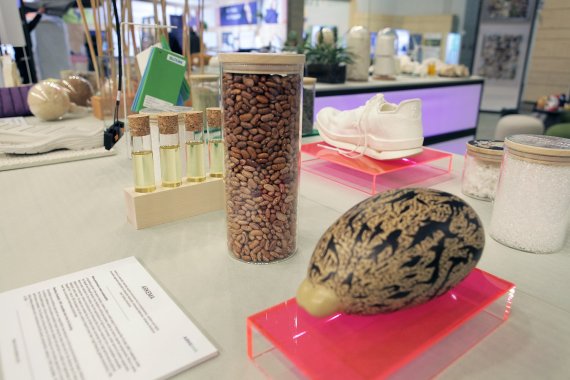
Bloom Sustainable Materials is on a mission to reduce the environmental impact of traditional foams and rubbers by incorporating biomass. Their innovative process extracts excess algae from water, preventing its decomposition and thus reducing CO2 emissions. Partnering with 100+ brands, Bloom materials are utilized in footwear, automotive, consumer products, and sporting goods. The process involves harvesting algae, creating a paste, and using solar heat to produce algae flakes. Bloom's proprietary methods refine these flakes into green powders blended with polymers resulting in eco-friendly materials like EVA, Rubber, TPE, and TPR.
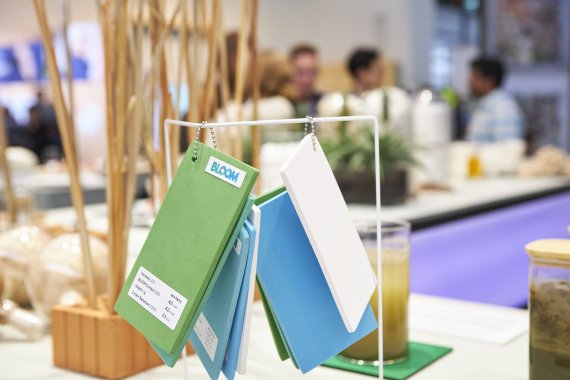
Engraw, a family-owned wool top manufacturer with 70+ years in Uruguay, produces 4,500 tons annually. Committed to a no-waste philosophy, they optimize wool fiber use. Mulesing-free wool tops from family-owned lands follow holistic land management, supporting biodiversity. Farmers measure carbon sequestration via the "Land to Market" program. Processed in a carbon-neutral certified facility powered by wind, Engraw's premium wool is praised for versatility, biodegradability, softness, flexibility, and superb thermoregulation. Adhering to top standards, Engraw holds RWS and GOTS certifications for animal welfare and organic practices. Greasy wool processing yields wool grease for various applications, from skincare to vitamin D3 production.
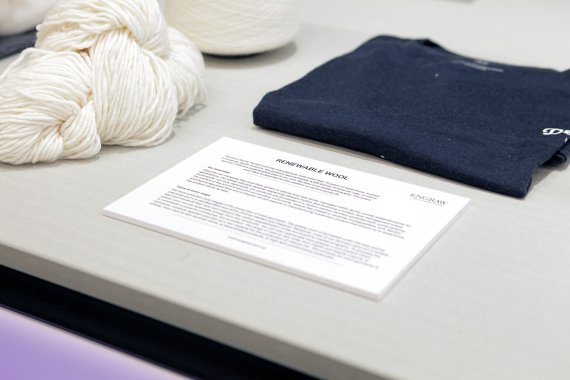
traceless is an innovative, 100% biobased substitute for plastics, derived from plant leftovers in agricultural grain processing. traceless has been designed for the biological cycle with the aim to create a holistic zero-compromise solution. Based on leftovers of industrial grain processing, it is fully biobased and free of potential food conflicts. Using natural biopolymers, it is certified plastic-free and home compostable. The production technology saves 91% of greenhouse gas emissions and 89% fossil energy in production and disposal compared to plastics. traceless can be processed with standard plastic converting technologies like injection moulding, and can replace plastics in many short-lived applications.
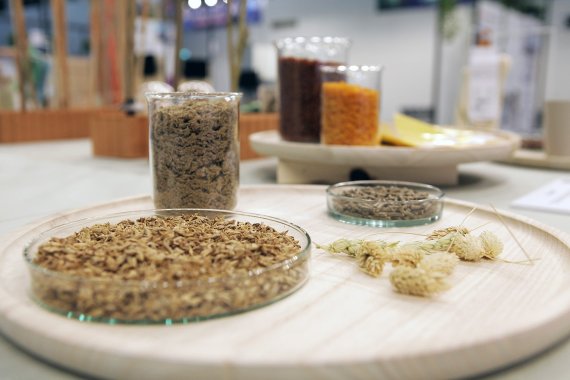
- ISPO awards
- Mountain sports
- Bike
- Design
- Retail
- Fitness
- Health
- ISPO Job Market
- ISPO Munich
- ISPO Shanghai
- Running
- Brands
- Sustainability
- Olympia
- OutDoor
- Promotion
- Sports Business
- ISPO Textrends
- Triathlon
- Water sports
- Winter sports
- eSports
- SportsTech
- OutDoor by ISPO
- Heroes
- Transformation
- Sport Fashion
- Urban Culture
- Challenges of a CEO
- Trade fairs
- Sports
- Find the Balance
- Product reviews
- Newsletter Exclusive Area
- Magazine
